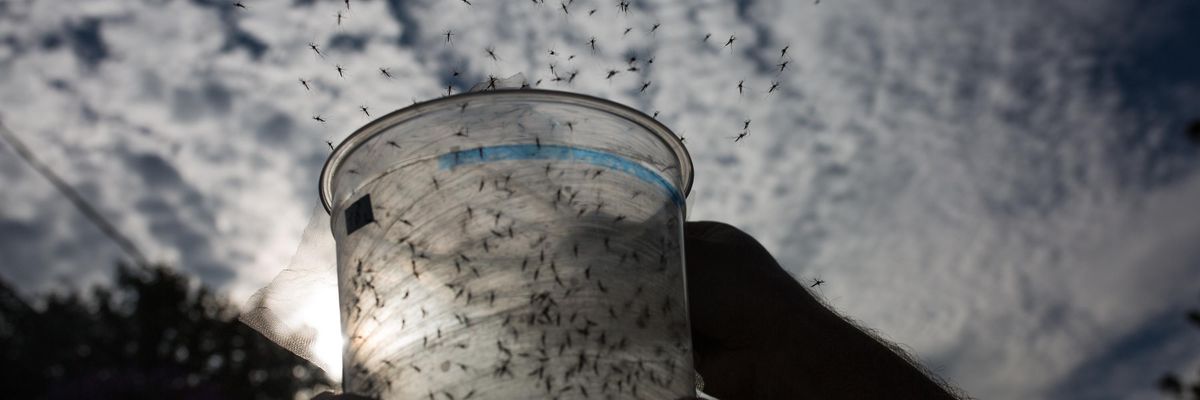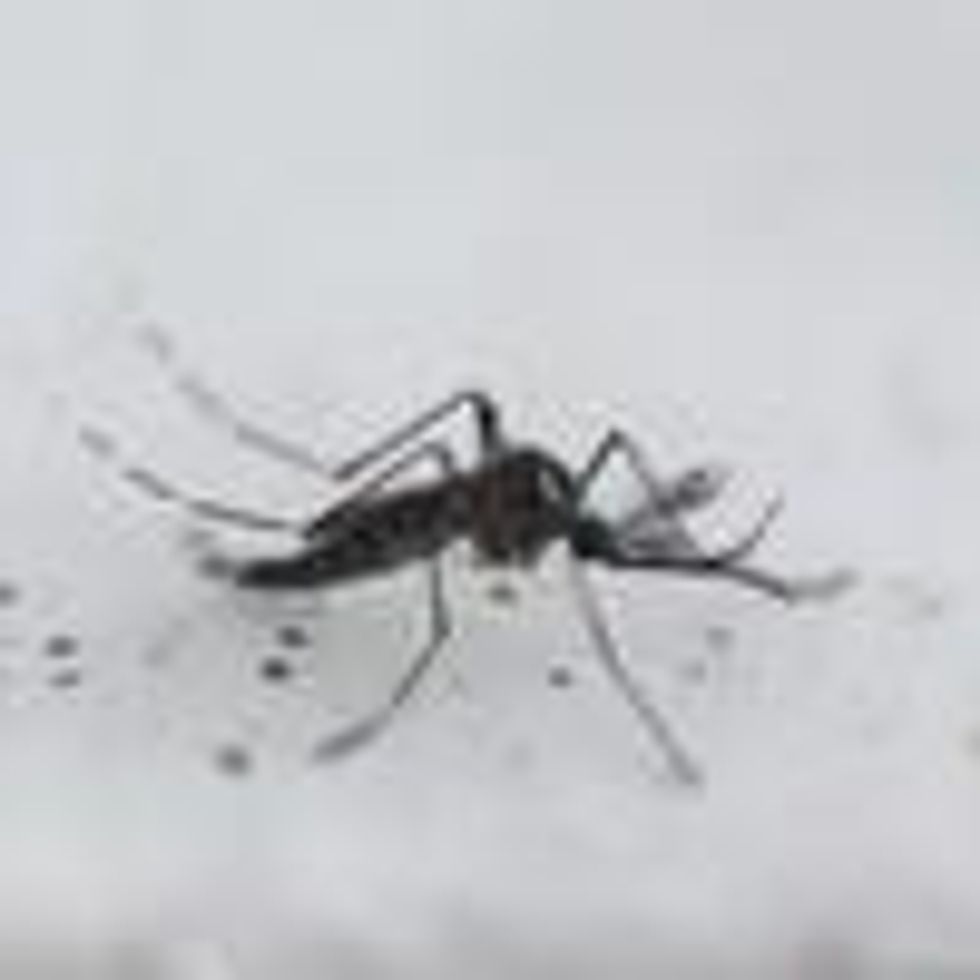Environmental and public health advocates responded with alarm after the Biden administration on Monday gave a British biotechnology company a green light to unleash up to billions of genetically engineered mosquitoes in the United States.
"GE mosquitoes could result in far more health and environmental problems than they would solve."
The Environmental Protection Agency (EPA) granted Oxitec an experimental use permit that could ultimately lead to the release of genetically engineered (GE) mosquitoes in four California counties and extend a widely criticized program in Florida's Monroe County.
The release is intended to investigate whether the GE mosquito can reduce the population of Aedes aegypti mosquitoes, which can carry various viruses. While the species has recently spread in California, there are no reported cases of the targeted diseases in the state.
"This experiment is unnecessary and even dangerous, as there are no locally acquired cases of dengue, yellow fever, chikungunya, or Zika in California," declared Jaydee Hanson, policy director for the International Center for Technology Assessment and Center for Food Safety.
Oxitec's altered male mosquitoes are supposed to pass on a gene that causes their offspring to die before reaching maturity. However, critics such as Hanson raised concerns about the risk of creating "hybrid mosquitoes that are more virulent and aggressive," and said that "other public health strategies, including the use of Wolbachia-infected mosquitoes, could better control the Aedes aegypti in California and Florida."
Dana Perls, food and technology program manager at Friends of the Earth, also suggested that "GE mosquitoes could result in far more health and environmental problems than they would solve."
"EPA needs to do a real review of potential risks and stop ignoring widespread opposition in the communities where releases will happen," asserted Perls, a California resident.
Fellow California resident Dr. Robert Gould, president of San Francisco Bay Physicians for Social Responsibility, emphasized that "once released into the environment, genetically engineered mosquitoes cannot be recalled."
"Rather than forge ahead with an unregulated open-air genetic experiment, we need precautionary action, transparent data, and appropriate risk assessments," he said.
As a joint statement from Gould, Perls, and Hanson's groups highlighted:
The EPA did not publicly release any data from Oxitec field trials in Florida or Brazil and key information about health effects, including allergenicity and toxicity, was redacted from the company's application for a permit. EPA did not require key scientific assessments, including an endangered species assessment, public health impact analysis, or caged trials ahead of any environmental release. The EPA declined to convene a scientific advisory panel as it does for other new pesticides.
The groups and other local organizations were outraged last spring when Oxitec introduced GE mosquitoes in Florida, the first release of its kind in the United States. Shortly before the launch, Friends of the Earth had called on the EPA to "halt this nightmare immediately."
Related Content
'Halt This Nightmare': Alarm as Florida Set to Begin Release of Genetically Engineered Mosquitoes
Jake Johnson
The permit covers the release of two billion GE mosquitoes in Florida and California's Fresno, San Bernadino, Stanislaus, and Tulare counties.
However, Meredith Fensom, head of global public affairs at Oxitec, told USA Today that the launch is planned to only cover the Florida Keys and Visalia in Tulare County, in order to study the mosquitoes in two different environments. She also said peer-reviewed data is expected to be released.
An Oxitec representative also contested activists' comments about safety and necessity in an email, saying that "this experiment has been found by the U.S. EPA to have no risk of adverse effects to humans or the environment," noting that the GE mosquitoes "will not persist" long after the release, citing scientific research on the company's technology, and pointing to the risk for disease transmission in places like California if mosquitoes bite infected people.
This post has been updated with comment from Oxitec representatives and information about the species in California, and to remove a study in Brazil.





